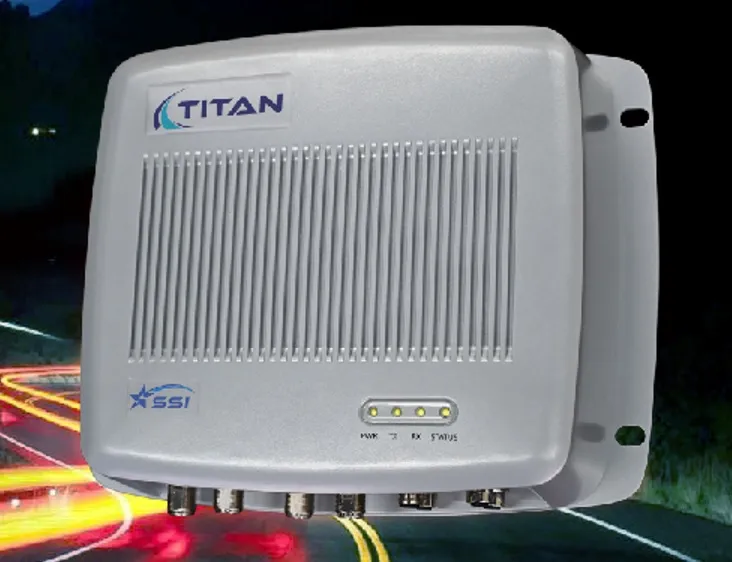The E-ZPass Group is to work with OmniAir Certification Services (OCS) to specify a testing program for ensuring full compliance of competitive equipment with E-ZPass readers and tags. OCS was hired by the E-ZPass Group for fees of around US$50,000 to detail the testing needed. The documents are due to be completed by the end of the year.
Actual testing for certification will be negotiated by manufacturers with OCS-accredited testing firms.
The move to certify additional suppliers’ equipment follows K
December 4, 2013
Read time: 3 mins
The 4981 E-ZPass Group is to work with 808 OmniAir Certification Services (OCS) to specify a testing program for ensuring full compliance of competitive equipment with E-ZPass readers and tags. OCS was hired by the E-ZPass Group for fees of around US$50,000 to detail the testing needed. The documents are due to be completed by the end of the year.
Actual testing for certification will be negotiated by manufacturers with OCS-accredited testing firms.
The move to certify additional suppliers’ equipment follows81 Kapsch’s decision to forgo intellectual property rights to the E-ZPass core and is seen as a follow-up towards interoperability and competition. The E-ZPass Group announcement says the certification program “leads to improved competition, and potential for reduced costs.”
Suzanne Murtha, chief executive of OmniAir comments: "Using independently evaluated testing techniques that have industry support and consensus is key to the continued improvement of efficiency in tolling and transportation systems."
Full members of the E-ZPass Group are contractually bound to buy exclusively from Kapsch for five years from the summer of 2011 through to July 2016, following the competitive procurement E-ZPass conducted in the years 2007 to 2011. That takes them through to July 2016.
E-ZPass Group executive director P J Wilkins says it is coincidence that the exclusivity of the Kapsch contract expires around the same time as the industry's target date for full national interoperability. Meanwhile, he says non-full members of the Group will be assisted to buy E-ZPass compatible equipment in a competitive setting.
He said: "This effort will ensure that equipment used by toll agencies is compatible with our own, and we can be confident that it will perform at the high level expected by our customers."
He says the certification process is a “very important” step toward national interoperability and a competitive market in compatible electronic toll equipment. He said it fits in with the work of the IBTTA-led committee on national interoperability because it will help instil confidence among toll operators that manufacturers’ claims of E-ZPass compatibility are valid.
He said the E-ZPass Group was following the model developed by the 6C Users Group, but with an add-on: “Not only does the equipment have to work. We are also laying out performance standards to be tested to and certified.” A key performance standard lays out the required minimum accurate reads per thousand passes of the gantry in a typical traffic stream. Tests are done with ranges of speed from stop and go to over speed limits at which specified accuracy rates must be obtained.
According to Wilkins, the63 IBTTA-led interoperability effort is very close to having an agreed list of protocols that need to be built into multi-protocol (MP) readers. At least three suppliers (Kapsch, 139 Transcore, and 4080 3M) have MP readers, and there may be others. But they will need to be tested and certified to work well enough with the list of chosen protocols.
Actual testing for certification will be negotiated by manufacturers with OCS-accredited testing firms.
The move to certify additional suppliers’ equipment follows
Suzanne Murtha, chief executive of OmniAir comments: "Using independently evaluated testing techniques that have industry support and consensus is key to the continued improvement of efficiency in tolling and transportation systems."
Full members of the E-ZPass Group are contractually bound to buy exclusively from Kapsch for five years from the summer of 2011 through to July 2016, following the competitive procurement E-ZPass conducted in the years 2007 to 2011. That takes them through to July 2016.
E-ZPass Group executive director P J Wilkins says it is coincidence that the exclusivity of the Kapsch contract expires around the same time as the industry's target date for full national interoperability. Meanwhile, he says non-full members of the Group will be assisted to buy E-ZPass compatible equipment in a competitive setting.
He said: "This effort will ensure that equipment used by toll agencies is compatible with our own, and we can be confident that it will perform at the high level expected by our customers."
He says the certification process is a “very important” step toward national interoperability and a competitive market in compatible electronic toll equipment. He said it fits in with the work of the IBTTA-led committee on national interoperability because it will help instil confidence among toll operators that manufacturers’ claims of E-ZPass compatibility are valid.
He said the E-ZPass Group was following the model developed by the 6C Users Group, but with an add-on: “Not only does the equipment have to work. We are also laying out performance standards to be tested to and certified.” A key performance standard lays out the required minimum accurate reads per thousand passes of the gantry in a typical traffic stream. Tests are done with ranges of speed from stop and go to over speed limits at which specified accuracy rates must be obtained.
According to Wilkins, the









